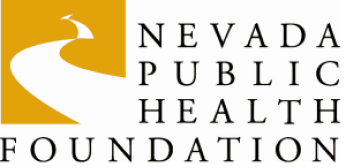Common Questions from Teens:
Q: Why is it called Statutory Sexual Seduction instead of Statutory Rape?
A: In Nevada, Statutory Rape is legally called Statutory Sexual Seduction. The two names can be used interchangeably but it is important to know legally it is called Statutory Sexual Seduction. We often refer to it just as Statutory Rape because it is how it is most known.
Statutory is another way of saying something is required by law or is a law. Seduction is a term used to describe the act of trying to persuade or entice someone to someone to do something; in this case, specifically engage in sexual acts.
Q: What does “age of consent” mean, and what is the “age of consent” in Nevada?
A: The age of consent is the age at which a person is considered to be legally competent to consent to sexual acts. An adult who engages in sexual activity with a person under the age of consent is unable to legally claim that the sexual activity was consensual. This means the sexual activity may be considered child sexual abuse or statutory rape. The person below the age of consent is always considered the victim, and the adult is regarded as the offender unless it is within the legal age limits allowed under the law.
The reason the age of consent is set is to protect the younger person from being taken advantage of by adults. In Nevada, the age of consent is 16 years old. This means that on their 16th birthday, a person is legally able to consent to sexual activity with others older than themselves. Under Nevada law, anyone under the age of 14 cannot legally say “yes” to sexual activity with anyone, even the same age as themselves.
Q: What if the younger person agrees/consents to have sex with the older person?
A: For age-gap relationships and Statutory Sexual Seduction, consent is not a defense. This means that even if the younger person said “yes” and wanted to be in a sexual relationship with the older person, it is still illegal if it is outside of the age gap allowed by the law.
Q: What if the older person didn’t know the younger person’s age? What if the older person didn’t mean to break the law?
A: In Nevada, statutory rape and sex offense crimes are called “strict liability” crimes. This means that a defendant’s intent to commit the crime doesn’t really matter. In this context, it is enough that a person had sex with the underage party to violate the statute. This is true regardless of whether the person intended to have sex with an underage person, or even believed they were having sex with a person of legal age. Even if the younger person lied about their age, the older person is held responsible under the law.
Q: I am in a relationship with a much younger person and I know it’s not right. What should I do?
A: Most people want a healthy relationship. A healthy relationship is one that is based on equality. An adult (over 18) who is in a relationship with a minor (4 or more years younger than them) cannot, by definition, be equal partners in a relationship. Statutory rape is not only an issue of consent but also one of coercion and exploitation. Anytime an adult has a sexual relationship with someone who is underage, it is a form of exploitation, even if no overtly coercive behavior appears to be involved. The adult is using the sexual and emotional inexperience of the teen to get something from them.
You may just have the feeling that your relationship with a younger person is not right, or a friend may have told you that your relationship is uncool. Well, your relationship may be against the law. You can spend time in jail and be considered a sex offender, needing to register with state sex offender registries.
Do the right thing. End the relationship. Respect yourself and your need for a healthy, equal relationship.
Q: I know a younger person who may be in a coercive relationship. What should I do?
A: You hear the younger person talk about their older partner and you just know it’s not right. Older people often date minors because it is easier to sexually coerce them. Teens that are in sexually coercive relationships don’t recognize that their relationship is unhealthy. But the law in Nevada is there to protect the younger person. A minor cannot consent to a sexual relationship with an adult. The teen, even if they think they are choosing the relationship, is still the victim in the eyes of the law.
To help your friend, simply talk with them and let them know your concerns. Talk with their parents or a teacher. Call the Crisis Support Services of Nevada Hotline (1-800-273-8255) or text “care” to 839863. Go to the police. Get them the help they need.

Healthy Relationships 101
Healthy relationships bring out the best in you and make you feel good about yourself. A healthy relationship does not mean a “perfect” relationship, and no one is healthy 100% of the time. In general, the keys to a healthy relationship include respect, honesty, trust, equality, and good communication. Another important part of a healthy relationship is loving yourself!
How do I know if my relationship is healthy?
When a relationship is healthy, you and your boyfriend/girlfriend/bae/whatever feel good about the relationship most of the time. Healthy relationships also make you both feel good about yourselves! Every healthy relationship includes respect, trust, honesty, equality, and good communication.
If you’re wondering whether your relationship is solid, here are some things to think about:
Respect
A respectful relationship is one that includes mutual respect, good communication, and honesty. Your significant other should make you feel safe and cared for.
If you are unsure whether your relationship is respectful, ask yourself these questions:
- Do you listen to each other?
- Do you treat each other like friends?
- Are you proud of each other?
- Are you kind to each other?
Trust
A trusting relationship is when you and your significant other have faith in each other. When you trust someone, it means you know that you can rely on them and you are comfortable telling them things. Trusting relationships should feel safe and comforting.
If you are unsure whether your relationship is trusting, ask yourself these questions:
- Are you both cool with spending time apart from each other?
- Do you feel secure about the relationship?
- Do you have faith in each other’s decisions?
Honesty
An honest relationship is when you and your partner always tell each other the truth. If you are in an honest relationship, both you and your partner should feel comfortable being totally open with each other. This means being honest with yourself when you are around each other, never hiding who you are, sharing your true opinions and feelings with your partner.
If you are unsure whether you are in an honest relationship, ask yourself these questions:
- Do you both admit when you’re wrong?
- Do you both feel like you can tell the truth?
- Do you talk openly about your feelings, even when it’s hard?
Equality
Equality in a relationship means that both you and your partner are respected and valued. Rather than one person’s needs dominating the relationship, both of you are happy and feel respected.
If you are unsure whether you are in an equal relationship, ask yourself these questions:
- Do you both get to make decisions about your relationship and how you spend your time?
- Do you give and take equally?
- Do you both compromise?
- Do you consider both people’s feelings when talking and making decisions?
Good Communication
Good communication in a relationship is when both you and your partner tell each other things and listen to each other. Communicating well also means that you and your partner take time to understand each other and share positive feelings.
If you are unsure whether you and your partner have good communication, ask yourself these questions:
- Do you talk about your feelings with each other?
- Can you disagree about something without disrespecting each other?
- Do you listen to each other without judging?
Unhealthy Relationships
Nobody’s relationship is perfect, and everyone makes mistakes. But, if you feel like you’re being treated badly, you probably are. Listen to your gut. Healthy relationships make you feel good about yourself — unhealthy relationships don’t.
Signs of an Unhealthy Relationship
If you feel like your relationship does not feel respectful, trusting, honest, equal, and communicative, it may be going in the wrong direction. Some warning signs of an unhealthy relationship include:
- Controlling behaviors: One person is controlling over the other. Behaviors can include checking the other person’s phone without permission, keeping track of everything they do on social media, or telling them who they can or can’t hang out with.
- Disrespect: lying, cheating, name-calling, insulting you, judging your appearance, and just being mean in general
- Co-dependence: When one of you feels like you can’t do anything without the other.
- Manipulation: Convincing you to do something that you don’t want to do or making you feel like you “have to” do something.
- Abuse: Hurting you physically, emotionally, or sexually.
What to do if your relationship is unhealthy
If you think your relationship is unhealthy, talk about it. Sometimes you can help fix things by talking out your feelings and making changes to how you treat each other. If you feel unsafe or scared to talk about it, or you’ve tried talking and things aren’t getting better, it might be time to end the relationship. It can be hard, but you — and everyone else — deserve a relationship that feels safe, healthy, and happy.
How to Get Help
If you or a friend is in an unhealthy relationship, there are many resources available to help! First, you can try talking to a parent, teacher, or counselor for help. You can also visit One Love for resources or talk to someone through their 24/7/365 helpline.
 Event Registration
Event Registration